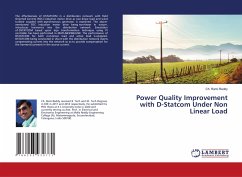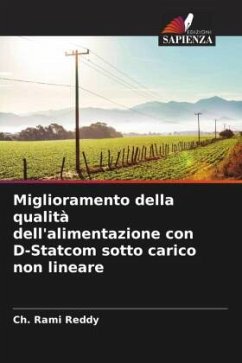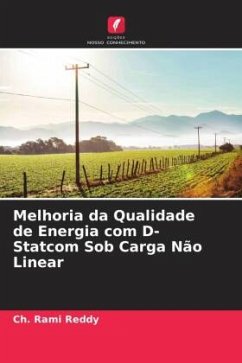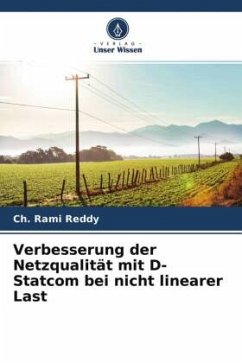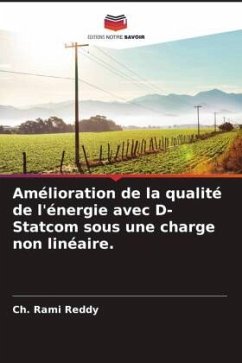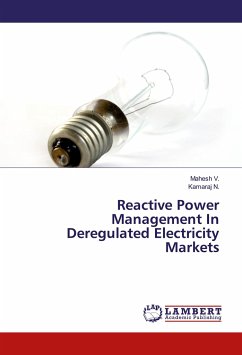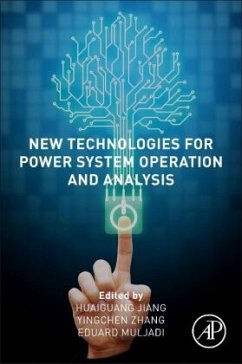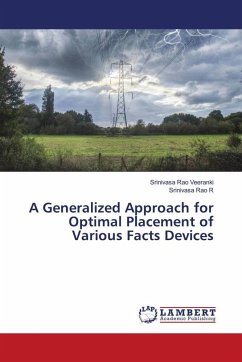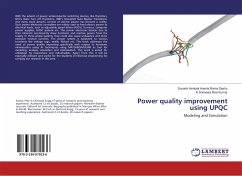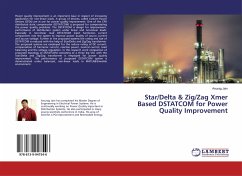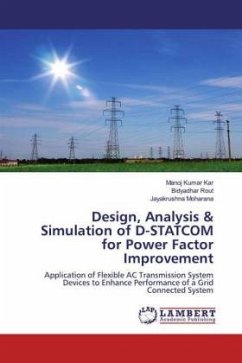
Design, Analysis & Simulation of D-STATCOM for Power Factor Improvement
Application of Flexible AC Transmission System Devices to Enhance Performance of a Grid Connected System
Versandkostenfrei!
Versandfertig in 6-10 Tagen
27,99 €
inkl. MwSt.

PAYBACK Punkte
14 °P sammeln!
Power quality is a major issue in the distribution system. Now-a-days power system become very complex with interconnected long distance transmission lines. The interconnected Grids become unstable as the heavy loads vary dynamically in their magnitude and phase angle hence power factor varies. Therefore, in order to meet increasing power demand, utilities must rely on power export arrangements through the existing transmission systems. FACTS controllers, such as Static synchronous compensator (STATCOM) and Static VAR compensator (SVC) are found to be the latest and very effective technology o...
Power quality is a major issue in the distribution system. Now-a-days power system become very complex with interconnected long distance transmission lines. The interconnected Grids become unstable as the heavy loads vary dynamically in their magnitude and phase angle hence power factor varies. Therefore, in order to meet increasing power demand, utilities must rely on power export arrangements through the existing transmission systems. FACTS controllers, such as Static synchronous compensator (STATCOM) and Static VAR compensator (SVC) are found to be the latest and very effective technology of power electronic switching devices in power distribution network. This work presents the application of D-STATCOM in a distribution network to control voltage and power flow and thus improves the power quality. The system model is obtained using rotating d-q frame. The non-linear load generates an appreciable amount of harmonic which causes distortion. This harmonic distortion can even affect the performance of other loads connected in the system. D-STATCOM injects a compensating current in to the power system network and thus improves the power factor.



